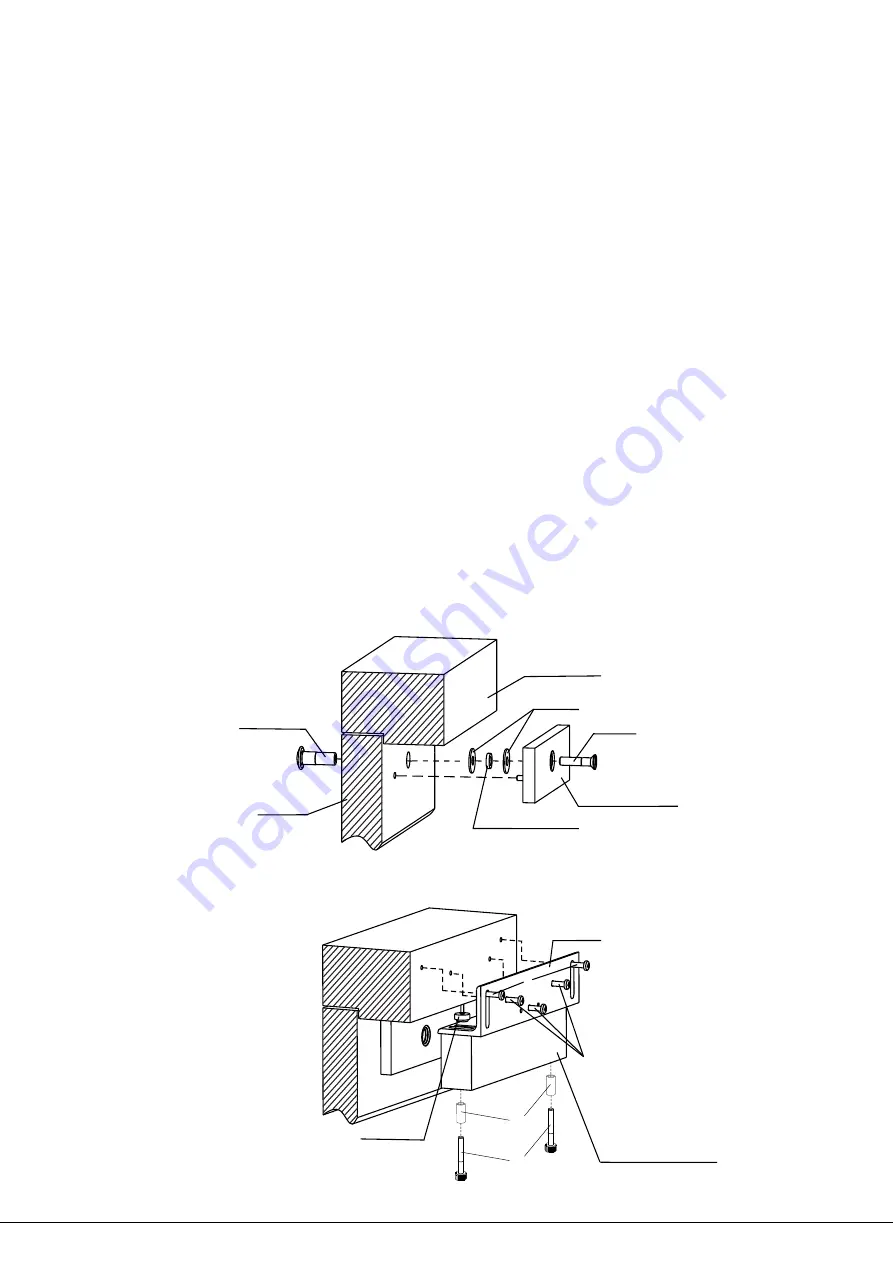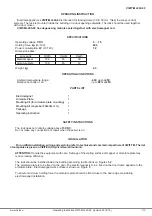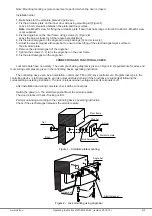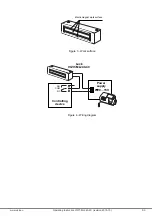
Note: Mounting marking is more convenient to perform when the door is closed.
Installation order:
1. Make holes for the armature plate and guide pin.
2. Fix the armature plate on the inner door side using mounting kit (Figure ).
Leave 4..5mm clearance between the plate and door surface.
3. Fix the angle bar on the door frame using screws (1) (Figure ).
Leave the screws loose for further angle bar adjustment.
4. Fix the electromagnet on the angle bar using
screws ( ).
5. Adjust the electromagnet with angle bar to ensure close fitting of the electromagnet work surface to
the armature plate.
6. Remove the electromagnet off the angle bar.
7. Tighten the screws (1, 2) to fix the angle bar on the door frame.
8. Fix the electromagnet on the angle bar.
Lock terminals have no polarity. The example of wiring diagram is given on Figure . Requirements for wires and
more wiring examples are given in the controlling device operating instruction.
The controlling device can be a doorstation, control unit, TM- or RF-keys controller etc. Program lock type in the
controlling device - electromagnetic- and its unlocked state duration (if the functions are supported) following the
corresponding operating instruction. The lock is released when voltage across its terminals is off.
After installation and wiring complete, check all the connections.
Switch the power on. The electromagnet attracts the armature plate.
The door is locked. Check if locking is firm.
Perform unlocking according to the controlling device operating instruction.
Check if the electromagnet releases the armature plate.
1
2
CONNECTION AND FUNCTIONAL CHECK
bushings (3) and
4
4
Note.
Use M6x45 screw for fixing the armature plate if door thickness range is from 50 to 60 mm. M6x45 screw
is not supplied.
Figure 1 – Armature plate mounting
Armature plate
Nut
Door
Door frame
Screw
Washer
Rubber washer
Figure
– Lock mounting using angle bar
2
2
1
Angle bar
Electromagnet
Screw-nut
4
3
www.
24
201 -
Operating Instruction VIZIT-ML
0-40 (revision
5 10)
vizit.eu
2 3
/





















